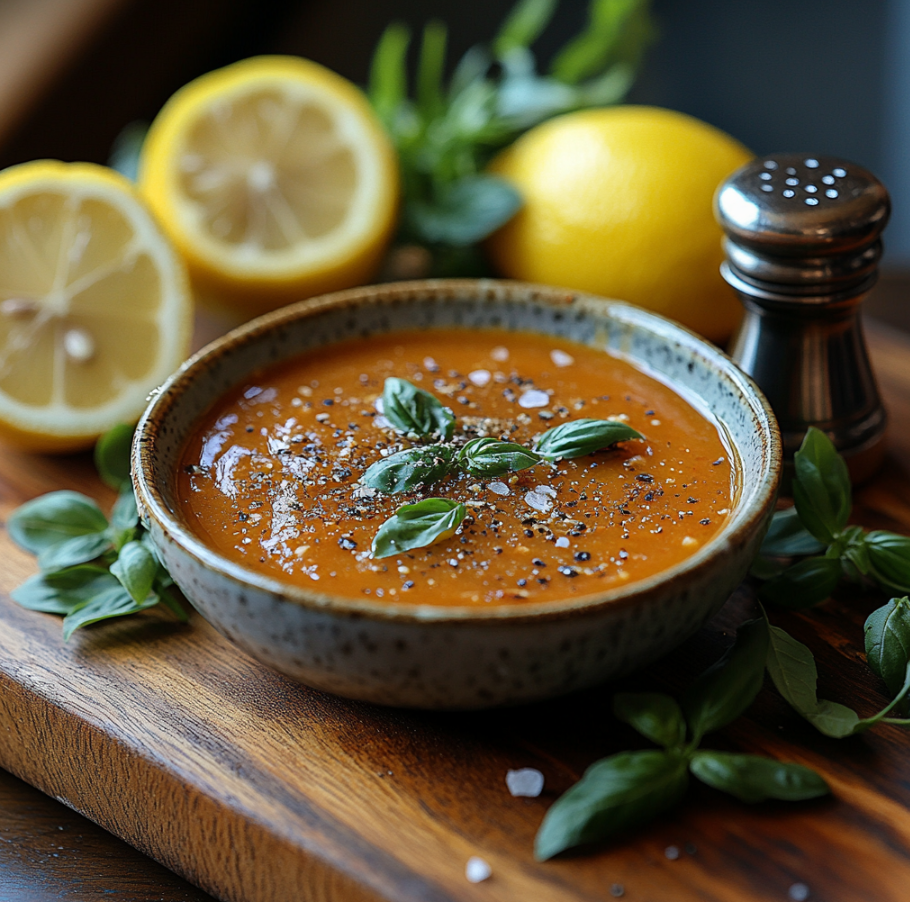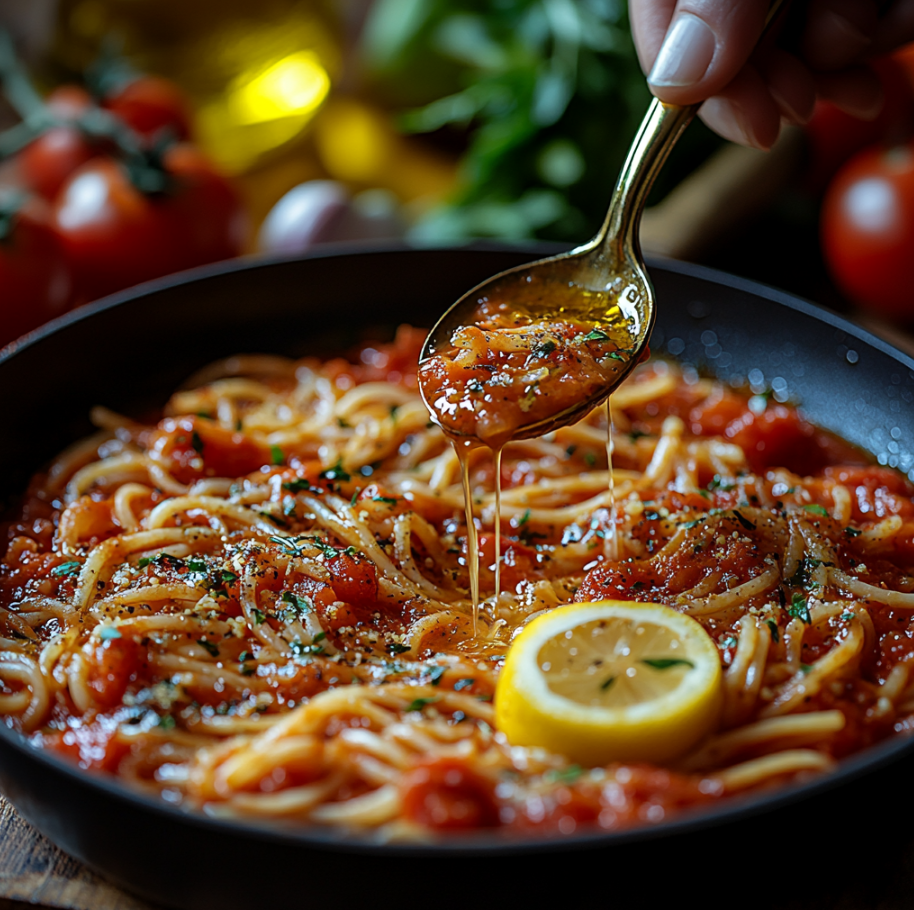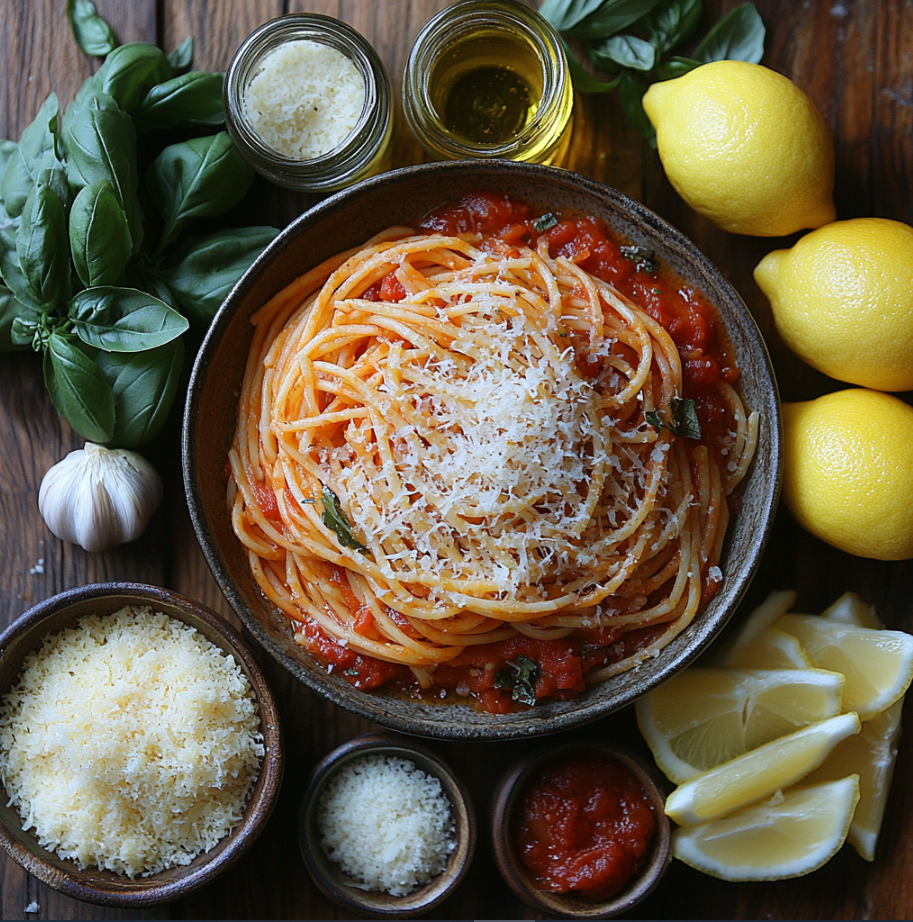Incorporating lemon juice into pasta sauce is a simple yet effective way to elevate the flavors and balance the acidity. Whether you’re using it to brighten a tomato-based sauce or to add complexity to a cream-based dish, lemon juice is a versatile ingredient that enhances the overall taste profile without overpowering the dish. But what exactly happens when you add lemon juice to your pasta sauce, and how can it improve the flavor?
The Role of Lemon Juice in Balancing Acidity
Lemon juice interacts with the natural acidity of tomatoes to create a more balanced and vibrant sauce. While both ingredients are acidic, lemon juice introduces a sharper, more distinct tang that complements the tomatoes, making the sauce taste fresher and more complex. This is particularly useful for sauces that have been simmering for a long time and might have lost some of their brightness.
If you’re interested in experimenting with different flavors in your pasta, check out this Pasta alla Norma recipe, where balancing acidity is key to bringing out the richness of the dish.

Enhancing Flavors Without Adding Salt
One of the significant benefits of using lemon juice is that it can replace or reduce the need for added salt. Lemon juice works as a natural flavor enhancer, brightening the sauce without increasing sodium levels, making it a great option for those looking to cut back on salt. This technique works well in both tomato and cream-based sauces.
For a recipe that shows how to use tangy ingredients effectively in savory dishes, you can also check out this Avocado Salsa Recipe.

Practical Tips for Using Lemon Juice in Pasta Sauce
Here are a few tips to get the most out of using lemon juice in your pasta sauce:
- Start small: Use about 1 teaspoon of lemon juice per 2-3 cups of sauce. You can always add more if needed.
- Add at the end: To preserve the fresh, tangy flavor of the lemon juice, add it at the end of the cooking process.
- Balance with other flavors: Use lemon juice alongside complementary ingredients such as garlic, basil, and Parmesan to create a more balanced dish.

Complementary Ingredients
Adding lemon juice doesn’t just boost the acidity of the sauce. It pairs well with a range of other ingredients that can further enhance the dish:
- Garlic: Its bold flavor complements the tanginess of lemon juice.
- Basil and oregano: Fresh herbs bring out the natural flavors of both lemon juice and tomatoes.
- Olive oil: Adds richness and helps smooth out the sharper flavors of the lemon.

FAQs About Lemon Juice in Pasta Sauce
Does lemon juice reduce the acidity of tomato sauce?
No, lemon juice and tomatoes are both acidic, but they complement each other rather than reduce overall acidity. The result is a more balanced and flavorful sauce.
How much lemon juice should I add to my sauce?
Start with a teaspoon for every 2-3 cups of sauce and adjust to taste.
Can I add lemon juice to creamy pasta sauces?
Yes, lemon juice works well in cream-based sauces, adding a tangy contrast to the richness of the cream.
Conclusion
Adding lemon juice to your pasta sauce is a simple way to brighten and enhance its flavors, while also offering a healthier alternative to salt. Whether you’re looking to balance the acidity in a tomato-based sauce or add complexity to a cream-based dish, a squeeze of lemon juice can make a big difference. If you’re interested in other delicious pasta recipes, check out this Lemon Chicken Pasta for another example of how lemon juice can enhance the flavor of a classic dish.

